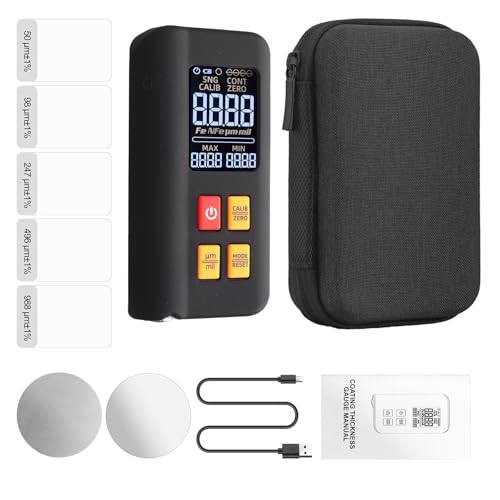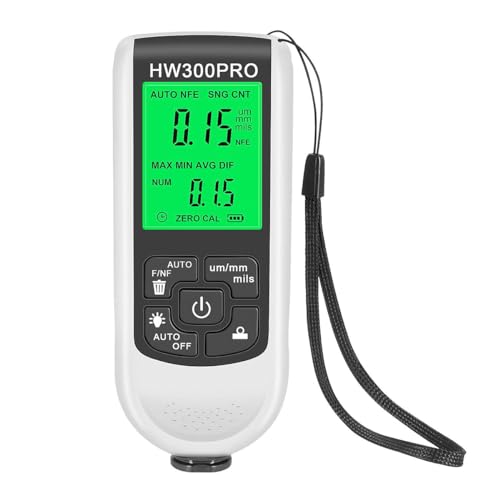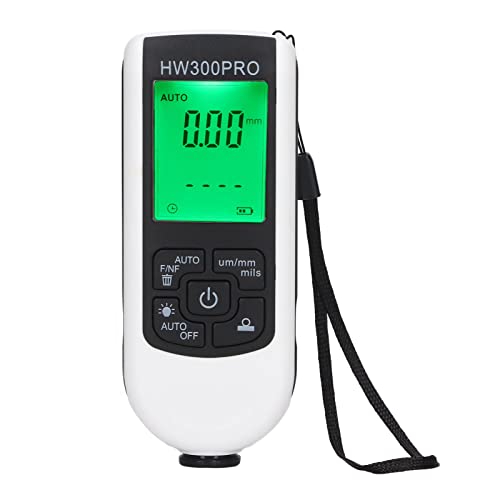Understanding Coating Thickness Gauges: What They Are and How They Work
What is a Coating Thickness Gauge?
A coating thickness gauge is a tool used to measure the thickness of coatings applied to surfaces such as metal, plastic, and wood. These coatings can include paint, varnish, or other protective finishes. The way the gauge works is based on different principles depending on whether it’s a digital or analogue model. Digital gauges typically employ magnetic induction or ultrasound to give you an immediate reading, while analogue gauges may use dial indicators. Understanding how these tools function is key to utilising their benefits effectively.
How do They Operate?
When you want to measure the thickness of a coating, the gauge works by either measuring the magnetic field or sending sound waves through the material. In magnetic gauges, the measurement occurs when the tool detects the strength of the magnetic field while in contact with the surface. Ultrasound gauges, on the other hand, send sound waves into the material and measure the time it takes for the waves to return after hitting the underlying substrate. Each method allows for quick, accurate measurements, helping professionals ensure that coatings meet required specifications.
Key Features to Look for in a Coating Thickness Gauge
Measurement Range and Precision
One of the first features to consider is the measurement range. Different coatings require different thickness tolerances, so we should look for gauges that can accurately measure coatings as thin as a few microns to those that are several millimetres thick. Precision is also crucial; a quality gauge will provide consistent readings with minimal variation, allowing users to trust the data presented.
Ease of Use
An easy-to-use interface is another aspect to consider. Whether we’re using it in a workshop or on-site, we benefit from gauges that offer a straightforward reading display, clear buttons, and simple operation. Features like auto-calibration can save time and reduce errors. It’s also advantageous if the tool comes with a user-friendly manual or online resources for troubleshooting.
Durability and Portability
Given that we might take a coating thickness gauge into various environments, especially outdoors, durability is key. Features such as a rugged casing, water and dust resistance, and the ability to withstand drops can be particularly beneficial. Portability, including weight and ease of transport, also matters. A compact design with protective casing often makes it easier to carry around without risking damage.
Choosing the Right Type: Digital vs. Analogue Gauges
Advantages of Digital Gauges
Digital gauges are incredibly popular due to their accuracy and ease of reading. They provide instant results, often accompanied by additional features such as data logging, which allows us to store measurements for later analysis. Furthermore, many digital models feature backlit displays, making them ideal for use in low-light conditions.
Benefits of Analogue Gauges
While digital gauges are gaining popularity, there are still advantages to using analogue gauges. They are often more affordable and can be simpler to understand for those who prefer a traditional readout. Analogue models can also be quite rugged, requiring no batteries, making them reliable in remote locations or situations where power is unavailable.
Practical Applications: When and Where to Use a Coating Thickness Gauge
Industrial Applications
In industrial settings, coating thickness gauges are essential for quality control. Whether we’re ensuring a paint job on a car meets specifications or verifying that a layer of insulation on pipes is adequate, these gauges help maintain high standards. They are also invaluable in the construction industry, where checking the thickness of protective coatings on materials like steel beams can prevent corrosion and lengthen asset life.
Home Projects and DIY
For those of us engaged in home improvement or DIY projects, a coating thickness gauge can be particularly useful. We might find ourselves needing to measure the thickness of paint before undertaking a repainting project or ensuring that wood treatments are applied adequately. This can assist in achieving professional results at home, ensuring that we apply the right amount of product for durability.
Our Top Picks: Recommendations for Different Budgets and Needs
Best Value Option
For those looking for a reliable yet affordable coating thickness gauge, we recommend a basic digital model that balances features and price without compromising accuracy. These models typically offer a good range of measurement and straightforward usability, making them suitable for both beginners and seasoned pros.
Premium Choice
If you’re looking for advanced features and the highest level of precision, consider a high-end digital gauge with capabilities such as data logging and multiple measurement modes. These are ideal for professionals who need detailed analytics and trusted accuracy for critical projects.
Portable Units
For those who frequently work on outdoor or remote projects, a compact and durable coating thickness gauge can be essential. Look for models that combine rugged build quality with lightweight portability, providing ease of transport without skimping on reliability.


















